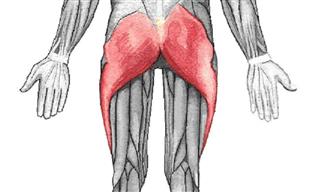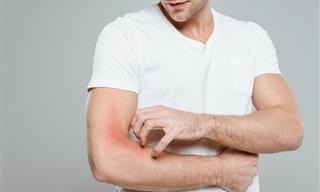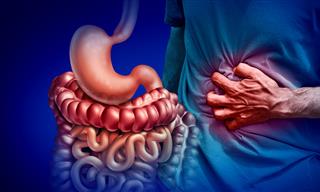A minor headache, toothache, sore throat, an upset stomach, minor burns and scrapes, vomiting, bug bites, and all other sorts of minor issues can be handled effectively at home with some simple and natural remedies. Stocking up on the key items that make up a natural first-aid kit will keep you prepared and ready to respond quickly to common minor injuries and illnesses. Natural remedies work just as well, if not better, than chemically based medicines that can also have side effects, which nobody wants to have to deal with. Also, they will save you time and money.
Here are 10 natural items that you should always have in your natural first-aid kit.
1. Aloe Vera Gel

While it isn't possible to keep an aloe vera leaf in your first-aid box, you can most certainly keep aloe vera gel or aloe vera-based tissues in your kit. Aloe vera is effective at cooling down sunburn or minor kitchen scalds and burns. Furthermore, this natural antibacterial agent helps fight the bacteria that is responsible for acne and also stimulates the growth of new skin cells.
So, if you have any kind of skin problem, clean the affected area with water and then apply some aloe vera gel.
2. Arnica Gel or Cream
Arnica gel, cream, or essential oil is another must have item in the first-aid kit. Arnica contains anti-inflammatory and circulation-stimulating properties that make it an effective treatment for sprains, sore muscles, strains, and bruises.
• Add a few drops of arnica essential oil to 1 to 2 tablespoons of coconut oil or any carrier oil. Apply to the affected area, and gently massage it in.
• You can also apply arnica balm, ointment, or a compress 2-3 times a day.
Note: Never apply arnica on skin that has open cuts or wounds.
3. Activated Charcoal
For bloating and gas, activated charcoal is something you must have in your first-aid kit. Activated charcoal soaks up the excess acids and gases that have accumulated in your gut and provide quick relief from indigestion, acid reflux, and a bloated stomach.
• For stomach bloating, take activated charcoal capsules up to 3 times per day.
• To prevent gas, take 1 activated charcoal capsule with a glass of water one hour before eating any gas-producing meal.
Furthermore, activated charcoal is also good for relieving discomfort from insect bites, bee stings, and even rashes from poison ivy or poison oak. Simply moisten some activated charcoal powder with melted coconut oil and apply it to the area.
4. Witch Hazel

Due to its powerful anti-inflammatory and healing qualities, witch hazel is a very good home remedy for treating acne and other skin conditions. You can keep witch hazel extract or prepackaged witch hazel in your first-aid kit.
• To fight acne or soothe bites, stings, and other itchy spots, put a few drops of witch hazel extract on a cotton ball and rub it on the affected area a few times a day.
• To treat any kind of infection and clean germs from your face and hands, you can use prepackaged witch hazel pads as needed.
• To treat a hemorrhoid, you can use witch hazel pads instead of toilet paper after a bowel movement. This will treat as well as protect the affected area from further irritation.
5. Chamomile
Be it over-the-counter chamomile lotion, chamomile tea bags, or essential oil, this is definitely one item you must have in your first-aid kit. Chamomile has a mild sedative, antispasmodic, anti-inflammatory, and antibacterial properties that can help treat a load of different problems.
• To relieve indigestion, stomach aches, bloating, and more, drink a cup of chamomile tea.
• To alleviate skin irritation, apply chilled chamomile tea bags to the affected area.
• To cure a headache or reduce tension and stress, apply chamomile oil to your temples. It helps the mind and body to relax.
• To sooth bug bites, bruises, and minor burns, apply the oil topically in either diluted or undiluted form.
• To ease muscle pain, you can add a couple of drops of chamomile oil to any massage oil and then apply.
6. Clove Oil
A few cloves or a small bottle of clove oil is another important item that you should have in your first-aid kit. Clove is helpful in fighting toothache and improving oral health, due to its antiseptic, anti-inflammatory, analgesic components, and antibacterial properties. It can also help you take care of a number of other issues as well.
• To ease tooth pain, simply dab some clove oil on a cotton ball and rub it on the sore tooth and the surrounding gums. Furthermore, chewing on a few cloves will help reduce the pain.
• To keep mosquitoes and other insects at bay, you can use a diffuser to disperse the aroma of clove oil in areas where you notice bothersome insects.
7. Lavender Oil

You definitely must leave space in your first-aid kit for a small bottle of lavender oil. Possessing excellent antiseptic and anti-inflammatory properties, this oil can be applied topically to burns, bruises, blisters, and insect bites, and stings.
• To help fight off an infection, mix a few drops of lavender essential oil to 1 teaspoon of olive oil or coconut oil, and apply to the affected area. Leave it on for 30 minutes, then rinse it off. Repeat twice a day until the infection has gone.
• To fight a headache, place a few drops on your pillow or handkerchief and breathe in the aroma.
• To repel mosquitoes, add a few drops of lavender oil to a carrier oil such as olive oil and apply it to your skin.
8. Baking Soda
Baking soda helps to counteract the venom of various insect bites, as well as bee and wasp stings. Furthermore, it works as an alkalizing agent to provide instant relief from heartburn and indigestion.
• For insect bites or stings, rinse the area with an antiseptic soap and water, then apply a baking soda paste and a little water. Rinse it off after 5 minutes, and repeat as needed.
• When dealing with heartburn, mix 1 teaspoon of baking soda in a glass of water and gulp it down.
9. Apple Cider Vinegar
Apple cider vinegar can be applied topically to bug bites or other skin issues, as well as ingested for gastrointestinal upsets. It can even be used for headaches.
• Dab a little apple cider vinegar on your skin for 10-15 minutes to relieve skin irritation from bug bites and skin infections. If you have sensitive skin, dilute it with water before applying.
• Mix 2 teaspoons of apple cider vinegar in a glass of water. Drink it to get rid of indigestion, an upset stomach, and bloating.
10. Ginger Candies or Capsules 
You really must have a packet of ginger capsules as well as crystallized ginger in your first-aid kit. Ginger has antioxidant, antiviral, anti-inflammatory, antibiotic, anticancer, antinausea, antispasmodic, antifungal, and antitussive (cough suppressant) properties.
• To prevent nausea and motion sickness as well as indigestion, you can take some ginger capsules.
• To soothe a sore throat, cough or congestion, chew on ginger candies or crystallized ginger.
Some Other Items to Include
• Medical tape
• Elastic wrap bandages
• Eye shields or pads
• Duct tape
• Cotton balls and swabs
• Instant cold packs
• Petroleum jelly or another lubricant
• Safety pins in different sizes
• Scissors and tweezers
• Soap or hand sanitizer
• Antibiotic ointment
• Thermometer
• Toilet paper or tissues
• A small bottle of water
Additional Tips
• Pick something sturdy and portable in which to store your first-aid supplies.
• Keep the kit out of the reach of children.
• Keep your first-aid kit in a place where it is easily accessible.
• Keep a first-aid kit in your home and one in your car.
• To prevent any breakages, wrap glass bottles in small pieces of thick flannel.
• Keep your supplies updated, and be sure to throw away expired items.
Source: top10homeremedies
 Go to BabaMail
Go to BabaMail




























